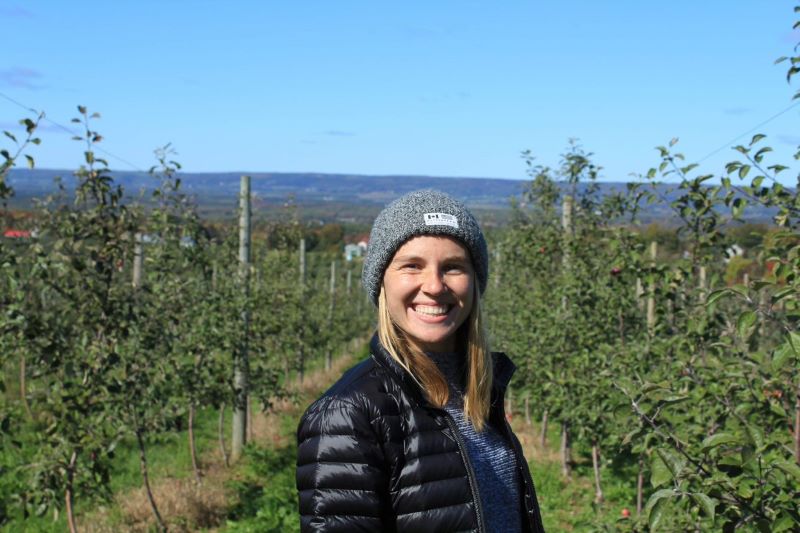Esther Shwarz

BA with a major in IDS and minors in Management and Spanish, 2019
Coordinator at the Mobile Food Market in Halifax
For Esther, versatility and flexibility are key assets for professionals in the development sector. She encourages IDS students to be open to diverse responsibilities and to invest in community-based initiatives.
According to , half of our plate should have fruits and vegetables, one quarter should have whole-grain foods, and the remaining quarter should have protein ŌĆō preferably coming from plants. However, this standard of healthy eating is not attainable for everyone. In 2020, Statistics Canada that one in seven Canadians experienced food insecurity.
Esther Schwarz, coordinator at the , is acutely aware of food insecurity and works every day to make high quality, affordable food available for vulnerable neighbourhoods in Halifax. ŌĆ£It is a privilege to support people in their journeys, especially through the struggles of food security. We strive to create programs where the community can shape how these will look likeŌĆØ, she says.
The Mobile Food Market is a non-profit organisation that has worked in Halifax since May 2016 on providing innovative solutions to communities that lack access to healthy, affordable food. It offers services such as standard markets, a Produce Pack Program and bulk food delivery. Esther has been working at the organisation since February of 2020, playing diverse roles in its programs. ŌĆ£Some days I am driving a really big truck that is loaded up with produce and I deliver it to different organizations, other days I am coordinating volunteers or writing new program materials, and other days I am meeting with community members and service organizationsŌĆØ, she points out.
In her experience, versatility and flexibility are great assets for professionals in the development sector, and she cultivated these assets throughout her undergraduate studies.
Esther is originally from Ontario, but has lived in Halifax since 2014, when she started her bachelorŌĆÖs degree at ┬ķČ╣┤½├Į. Her interest in the practical side of development led her to work with different organisations, gaining valuable experience before her graduation in 2019, with a major in IDS and minors in Management and Spanish.
Her placements included the coordination of community-based projects in a vulnerable neighbourhood of Waterloo, Ontario, with the non-profit organisation Life Change Adventures, and the role of client services staff at the Open-Door Women's Care Center in Halifax.
During the last years of her BA, Esther also worked as Program Support Assistant at the , and worked with faculty member Dr. John Cameron in a research project on non-profit public engagement.
One of the most valuable lessons from her studies at Dal is that ŌĆ£simple solutions donŌĆÖt work.ŌĆØ She asserts: ŌĆ£If you are coming up with a solution that seems simple to address a complex problem, you are likely leaving something or somebody behind. I try to keep that in mind and to be critical of the programs as I continue to work in this fieldŌĆØ.
A second insight from the IDS degree that Esther applies every day is that project indicators are only part of the story. She is aware of the importance of reporting outcomes, but she also takes the time to critically assess how projects unfold and what changes are suggested by community members.
Looking back to her years at Dal and her previous work experiences, Esther advises IDS students to dedicate enough time and effort to an initiative that is close to their hearts. She says that ŌĆ£lots of students participate in projects here and there, and they can learn a lot from that, but there is something to be said about contributing to a single organization or initiative. That encourages organizations to invest in students and to help them identify their weaknesses and strengthsŌĆØ.
